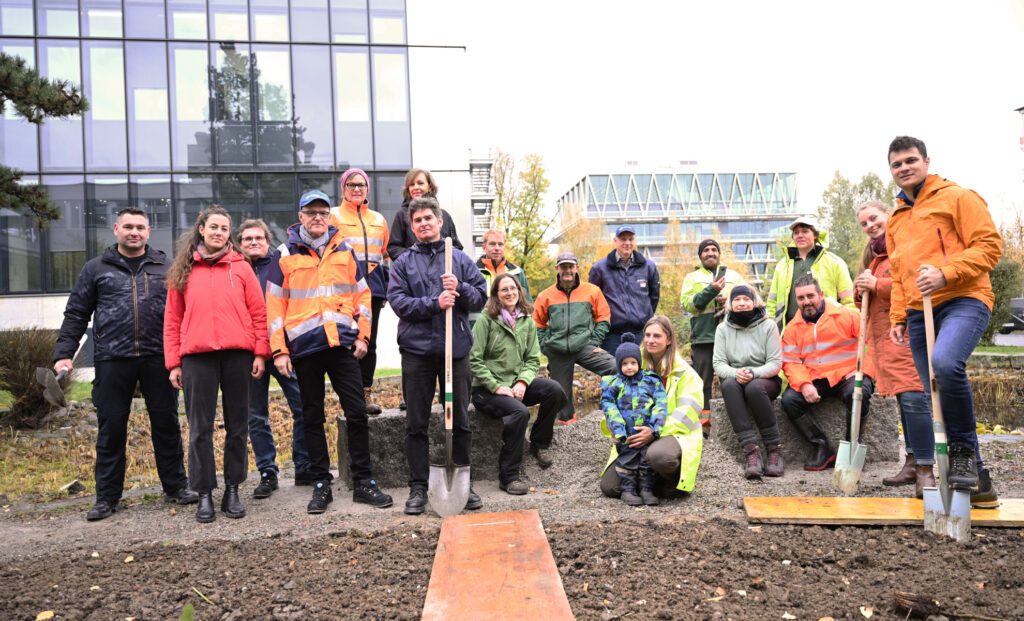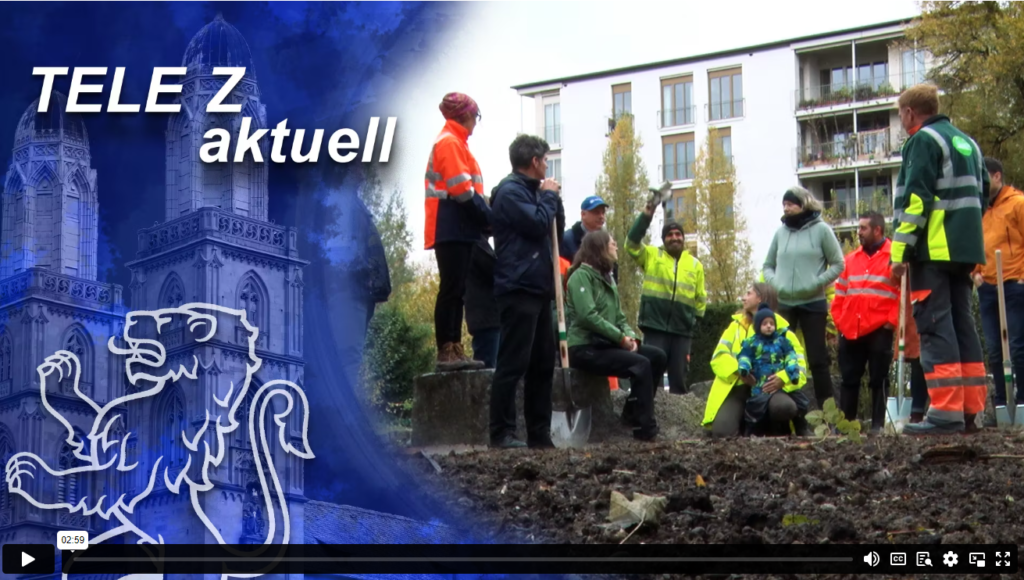
A historic milestone for corporate sustainability was reached on 10th November 2023, as the first tiny forest was planted on an industrial site in Zurich. Around 20 people came together at the Hagenholz site of Entsorgung + Recycling Zürich (ERZ) to plant 600 plants using the innovative Miyawaki method, while rooting themselves in nature. This project, which was initiated by the organizations engageability and the GIB Foundation and is supported by the “Für Züri” project competition, is an outstanding example of successful collaboration.

The importance of biodiversity
The loss of biodiversity is one of the most pressing threats to our planet. This insight is shared not only by scientists and environmental protection organizations, but also by the United Nations (COP15) and companies. According to the World Economic Forum (WEF) 2023, as much as 50% of the global economy is threatened by the consequences of biodiversity loss.
Barbara Dubach, Managing Director of engageability, emphasizes the transformative impact that nature-based solutions can have on the development of healthy, safe and resilient cities. The mini-forests created using the Miyawaki method are outstanding examples of such solutions.
About the Miyawaki method and its benefits
The Miyawaki method, named after the Japanese botanist Dr. Akira Miyawaki, offers an efficient reforestation method that can be used in small areas. It encourages the planting of native trees and shrubs and offers many benefits in urban areas, including reducing the surrounding temperature and thus the heat island effect, improving air quality and increasing the general well-being of local people.
In addition to ecological and health benefits, the project also offers an economic advantage through the positive association with the project and added social value through the active involvement of the local community. “The idea of engageability to plant an ecologically valuable mini-forest on the Hagenholz waste incineration plant site impressed us from the outset. As a service department of the City of Zurich, we are pleased to be able to make a contribution to biodiversity,” explains Daniel Aebli, Director of Entsorgung + Recycling Zürich.
Sustainable orientation and partnerships
The project is firmly anchored in sustainability. One guarantee of this is the collaboration with selected partners and experts, including Grün Stadt Zürich. Myriam Rothenbühler, project manager for nature conservation at Grün Stadt Zürich, explains: “We have a wealth of knowledge and experience in the selection of locations and plants, which we are happy to contribute to such projects.” Grün Stadt Zürich and the Zurich University of Applied Sciences (ZHaW) will monitor the progress of the forest over the next few years and evaluate the impact achieved.
This pioneering project demonstrates that acting sustainably is not only an obligation, but also an opportunity for companies to positively shape the world and strengthen our connection to nature – a vision for a shared and prosperous future.
Media coverage
Get an insight into the planation day via the Tele Z video report:

Also Punkt 4 worte an article about the project. Read here.
For further information on the project or inquiries about collaboration, please contact the project manager Eva Tabernig at engageability.


